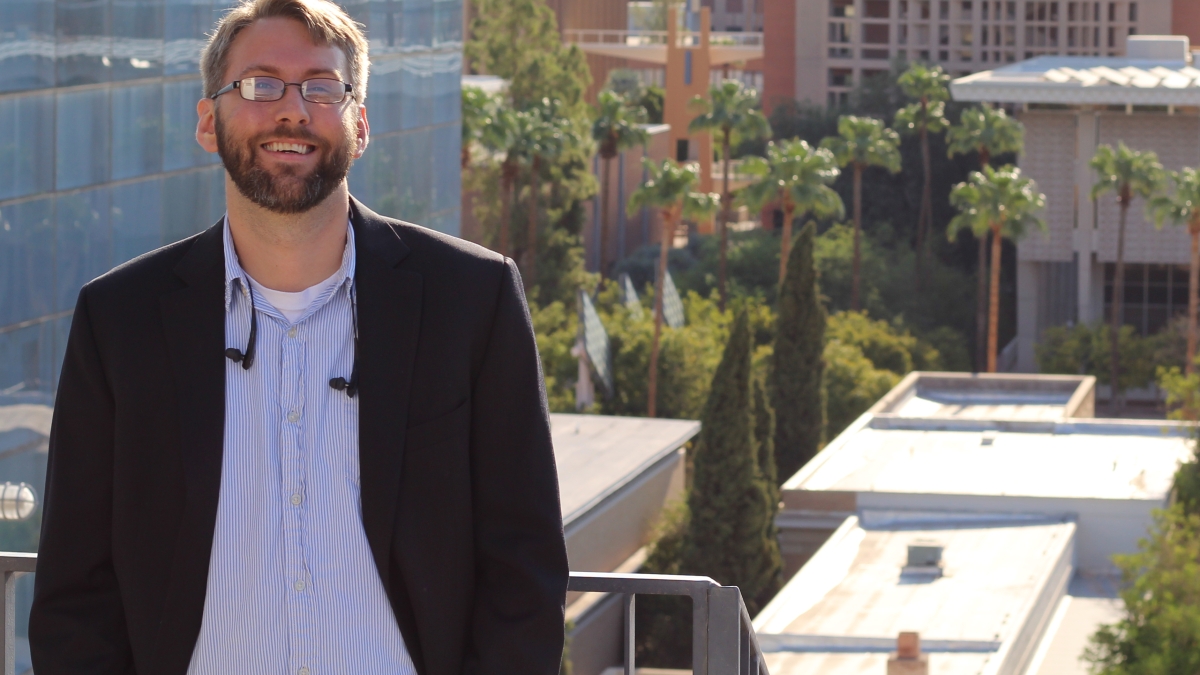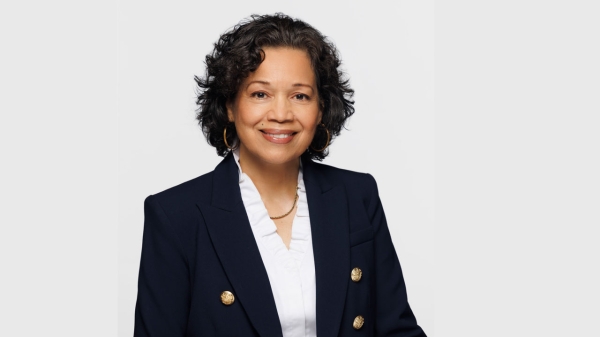ASU grad student examines human-rights violations in armed forces

A.J. Simmons, who works out of the School of Politics and Global Studies on the sixth floor of Coor Hall.
Traveling to Washington, D.C., gave A.J. Simmons, a doctoral candidate at the School of Politics and Global Studies, the opportunity to interview individuals with multiple perspectives on human-rights violations during times of war and the impact of prosecutions for those violations.
Simmons’ dissertation delves into causes and consequences of domestic accountability for alleged human-rights violations by U.S. armed forces. To do this, he recently spent two weeks in Washington, where he interviewed policy makers, civilians, military officials and other key individuals about their experiences with accountability in order to more thoroughly explore his theory.
While in the nation’s capital, Simmons worked with two ASU partners, New America and the McCain Institute. Both think tanks were instrumental to his project not only hosting him but also helping him set up several interviews while there.
Initially, Simmons had concerns that his interviewees may take his project the wrong way. He did not want to come across as if he were chastising the alleged human-rights violations of American service members. Instead he found his interviewees to be deeply interested in his project.
“I had one former officer in the American military go as far as to state that given the topic, my dissertation should be required reading at American military colleges once it is complete. To him, understanding the causes and consequences of accountability for alleged violations of armed service members is important.”
Reflecting on his time in Washington, Simmons said, “Almost every interview I conducted was amazing. I had the opportunity to talk with people I had only ever read about or saw interviewed on TV. Not only did I get to talk with them, I had their undivided attention for the entire interview. Each person I spoke with treated myself and my research like it mattered, which was fantastic.”
According to Simmons, the benefit of this direct contact with key decision makers makes his project even stronger and his arguments more compelling.
“The interviews shed a lot of different light on parts of my project, demonstrating that my expectations were correct, but with some additional twists I did not anticipate and couldn’t have guessed from afar. I’m excited to share these twists with my committee, other academics and policy makers.”
Although Simmons is still conducting several interviews, when his work is completed he hopes that his dissertation can shed some light on the decision making process that government leaders go through in times of conflict. He also hopes this work could help service members and policy makers better understand the consequences of violating human rights and laws during conflict.
“I sincerely hope that my project can help them discern the consequences of their decisions during these situations and gain a better understanding of outcomes they may face or contribute to.”
More Law, journalism and politics

CBS News president to give keynote address at Cronkite School’s spring convocation
Ingrid Ciprián-Matthews, president of CBS News, will serve as the keynote speaker at Arizona State University’s Walter Cronkite…

School of Politics and Global Studies director's new book explores mass violence
Why do people commit atrocities and why are certain groups, including religious and ethnic, more vulnerable to large-scale…

ASU faculty contributing to improvement of Wikipedia
Many academics have a love-hate relationship with Wikipedia. While the website has information about almost anything you can…